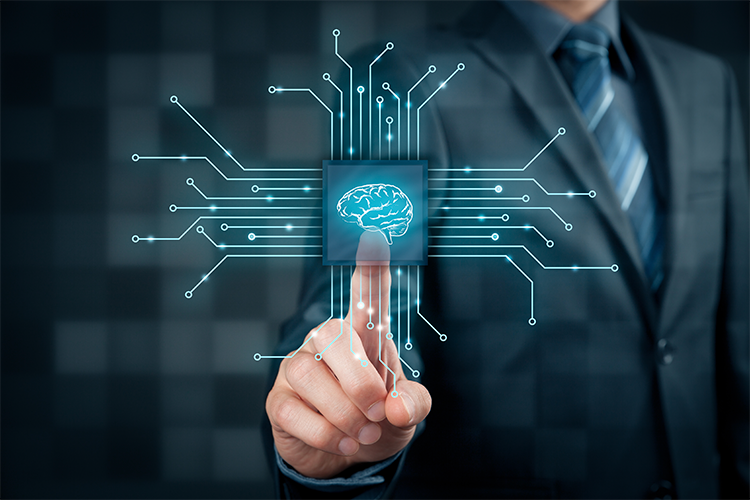In my previous blog, I wrote about the meaning of user and consumer experience, focussing on digital consumer experience. In this blog, I'd like to point out the key myths and recommendations in order to design a better consumer experience.

Consumers don’t think about their experience with a certain brand; they feel it. The mission of each brand is therefore to ameliorate the interweaving of these feelings with the desire to have a product which, as a whole, is better than the products created by their competitors with their strategy. A good consumer experience, namely, means a harmonised level of quality between the points of contact, without any of the channels prevailing over the others. And this is also the first of three myths about the digital consumer experience that I plan to highlight in this blog.
Myth no. 1: Their digital consumer experience matters to consumers
Consumers do not think about their experiences and do not rank their feelings according to digital and non-digital channels. All that matters to them is that they can communicate with the brand in the most convenient possible manner. In a time when data transfer is becoming faster and more accessible, this communication is mostly taking place on the Internet.

Myth no. 2: Digital consumer experience only means marketing and sales
The majority of assets that the brands allocate in order to improve the digital consumer experience are destined to marketing and sales; however, they forget to develop client services, such as loyalty programmes. In practice, consumers that are notified about the right content in an appropriate manner can easily access products available to them at the desired conditions; however, their experience when it comes to after-sale digital activities can be negative. Nowadays, forming experiences throughout the consumer life cycle has become a key point of a successful development of the business transactions of a company.
Myth no. 3: Digital consumer experience is only limited to web brands
All business branches are turning digital in the modern economy: a digital presence is, namely, resulting in operational excellence at all levels, including when it comes to the relationship with the consumer, an area without which modern global business transactions are hard to imagine. The brands that do not communicate via digital channels cannot unlock their entire potential without the Internet. In the future, each and every one of them will have to use digital technologies as the basis for a wholesome consumer experience and the force driving the income or growth of most brands, not only those that can be found online.

How to achieve a great digital consumer experience?
The boundaries between web channels and offline channels are becoming increasingly blurred, while consumer experiences are integrated, all-encompassing and not dependent on the channel through which the message has been sent.
How do we make sure that the digital consumer experience will contribute to a better overall experience?
The key to an exceptional consumer experience is to thoroughly think about planning and intertwining all purchase journeys taking place both online and offline. An efficient technique in this field has turned out to be the method of “design thinking”, which is also a good starting point to develop an agile system for delivering marketing messages via cross media, channels, and creative teams. The main purpose of using such methodology is a thorough reflection on how the entire purchase journey is functioning, instead of gradually removing each “Achilles heel” as it comes along.
The consumer, his needs and desires are placed in the starting point and at the same time also serve as real-time proof of performance, since newly designed purchase journeys and message systems are immediately tested and improved based on results from the field, i.e. the web. Using this methodology, we achieve concrete consumer models and marketing prototypes that can be continually tested in real time and adapted based on feedback.
Models of digital consumer experience, however, must also provide for a smooth integration with existing offline channels and past buying and selling journeys.
Guidelines for creating consumer experience in 2018
Since the only constant is change, let me provide you with my list of guidelines and changes for creating consumer experience that we can expect in 2018:

1. Improving the mobile experience will be a priority
While the mobile experience has already become the core of digital marketing, there is still room for improvement in this area. Experts in the field of consumer experience predict that mobile phones will play an even more crucial role in the digital consumer experience in 2018, since companies are looking to improve their websites or applications further. Foreign research specifically shows that a bad mobile experience with a brand, be it when using an application or when visiting a website, has a strong influence on the perception and the degree of involvement with the brand.
In the future, brands will therefore focus even more on their consumers, trying even harder to include them in the development process. They can do so using tools for obtaining feedback within an application (e.g. “in-app feedback apps”), enabling consumers to actively participate in designing them through surveys and voting. While there are numerous ways to improve the mobile experience, they are all based on improved, efficient feedback from the original application.
Facebook is clearly aware of that fact: these days, they are introducing new features in the field of evaluating consumer experience. With this move, Facebook emphasised the significance of revising the user experience that the advertisers are underlining in their marketing strategies. A new, more complex grading system with a broader range can namely enable a more transparent grading.

2. Personal adjustment will acquire a greater role
We are all very much aware of the term “personalisation”. Some even argue that it is currently one of the best marketing investments. Personalisation is definitely an important part of every marketing strategy of quality, which is why I dedicated two of my past blogs to this phenomenon (Personalisation, Part 1: Implementation tactics and Personalisation, Part 2: Why does adjusting advertising content work?).
As it turned out, adapting the content to consumers’ wishes really works, which means that brands are looking for new ways of getting to know their consumers better, and answer their questions and satisfy their needs in their communication. Personalisation allows buyers to achieve exactly what they wish, i.e. experiences and products and/or services that are really important to them. In other words, “bombarding” our potential consumers with irrelevant content and offers is no longer productive.
During information overload, better understanding of consumers is what comes first. Collected data can help us predict their needs and be there when they need us most. Thus, we’re building a positive experience with consumers and making sure they coming back.
3. Artificial intelligence (AI)
The role of artificial intelligence will be increasingly important since the amount of data will continue to rise, thus requiring more and more real-time reactions and interactions.
Data understanding provided by smart algorithms of artificial intelligence also means a high potential in the field of both digital and integral consumer experience. Technology will, namely, automatise more tasks in the field of consumer experience analysis, thus enabling digital teams to have more time to devote to other, more creative tasks. In addition, artificial intelligence will also be responsible for managing complexities in the cloud, thus helping to reduce the costs and ensure better safety and efficiency.

In the future, we can expect an increased number of smart home devices making it possible to shop practically without any effort, e.g. by using voice-activated control.
While I cannot accurately predict the future of the development of the user experience, I am convinced that past strategies will no longer suffice for the needs of future buyers. This is why the area of digital consumer experience is developing so quickly. I recommend that companies keep on improving their processes, actively thinking about ways to offer more to their buyers or to enable them a seamless experience reflecting the values of the brand; I believe that this especially applies to essentially technological brands including disruptive digital approaches into their processes. Have you ever wondered what Tesla, Apple, Uber or Airbnb can teach you?
